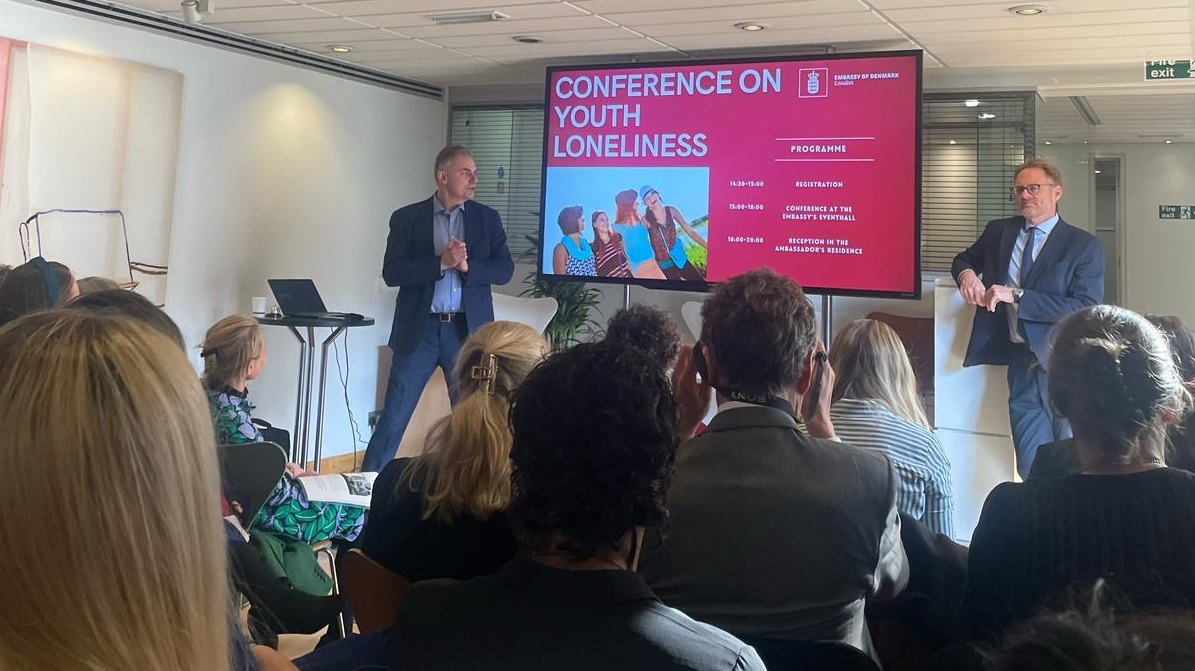.svg)
Spring is a season of hope, and this year more than ever it feels we have cause to celebrate the end of what has been a particularly grim winter, not just in terms of weather but for the millions of families in the UK that have struggled to stay warm and fed due to the Cost of Living Crisis. In this light we might be tempted to bid a particular good riddance to what has been a novel and striking feature of British life, namely the rise of ‘Warm Spaces’ which our impact assessment reveals have received over 2.4 million visits this winter.
For many the sight of faith groups, libraries and other community settings offering places of warmth to those struggling to heat their own homes perfectly encapsulates the mess that this country is in. It was hard not to despair at the state of British politics watching Prime Ministerial hopefuls last Autumn argue endlessly about tax cuts for the better off whilst millions faced imminent destitution. At the Warm Welcome campaign, it was striking how many media requests we received from international outlets who saw the warm spaces we coordinated as emblematic of Britain’s economic malaise.
Yet there is another side to the Warm Space story, one that deserves careful reflection from those seeking progress in the face of Britain’s many challenges. For what we have witnessed in the Warm Welcome campaign is a breath-taking show of bottom-up community resilience and creativity which, if harnessed and nurtured, might lead to some highly significant possibilities.
Assembled at break-neck speed last Autumn, Warm Welcome has been driven by a coalition of charitable organisations all seeking to support authentic local responses to the Cost of Living Crisis. With a low bar to entry (Warm Welcome Spaces simply have to be free to enter, warm, welcoming and safe), the campaign saw thousands of groups sign up in a matter of just a few weeks. For some, Warm Welcome provided a banner under which to grow and expand their existing activities – extending hours, running new sessions, reaching new parts of the community. for others it has been a catalyst to try something new – film nights, homework clubs, community meals.
The collective impact has been enormous. With Spaces welcoming up to 150,000 people each week, Warm Welcome has been inundated with stories of people finding not just places of warmth but of connection and meaning. Feelings of isolation and loneliness for visitors collapsed by 85% after using our spaces.
But perhaps the most striking thing about the campaign is the energy is has generated in host organisations, many of whom have found themselves revitalised in the aftermath of the Covid pandemic. And even with winter coming to an end, there is little sign of this energy dwindling. More than 70% of Spaces plan to carry on into Spring and beyond. In places like Bristol and Birmingham, Councils are now working with Warm Welcome networks as a ‘new normal’, seeing them as a kind of bottom-up safety net through which people can access all manner of support and advice on issues like damp and mould, debt, employment and mental health.
Given all of this, it is worth asking not just what the rise of Warm Spaces might say about Britain’s problems, but also what it might tell us about the pathway out of our present troubles. In Robert Purnam’s seminal work The Upswing, he notes that innovations like the Rotary Club were “one of hundreds of similar organisations and associations started during the Progressive Era, each an outgrowth of a wider cultural turn away from atomization and individualism and toward ‘association’ and communitarianism...these groups proved remarkably enduring, creating a vast store of social capital that fuelled the nation’s upswing for decades.”
Closer to home, thinkers like Marc Stears at the newly-launched UCL Policy Lab are emphasising the importance of what he calls ‘ordinary hope’ in forging a better national future. As Stears puts it, “heroism is not going to come from traditional places and orthodox places, it’s going to come from places which are dismissed as parochial and mundane… you’ve got to have big change, but the way you get to big change is by building big coalitions, not by engaging in polarised, narrow politics.”
Viewed in this light, the Warm Welcome network of over 7000 local groups united in an ongoing commitment to serve those in their neighbourhood holds a number of tantalising possibilities, from driving innovation around community energy and work towards net zero, to utilising community organising methods to build the power to tackle poverty and social isolation. With a Warm Welcome Space in just about every community in the country, the network contains a unique combination of grassroots energy alongside national scale. Far from being an emblem of doom and gloom, Warm Spaces should give us hope that the seeds of progress are already there in communities across the country, just waiting to be fed and nurtured.
Want more updates about the Warm Welcome campaign?
Stay up to date with our latest news:

.jpg)


